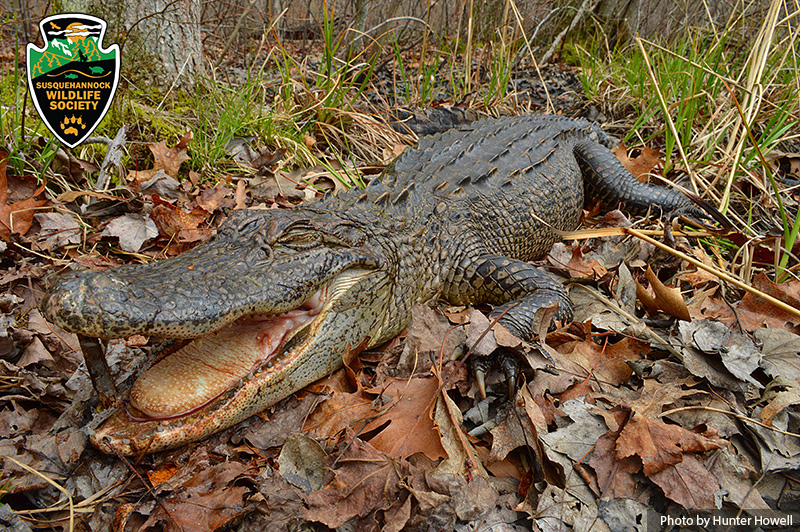A five-foot long, 50-pound American Alligator (Alligator mississippiensis) found dead in Harford County on Friday is believed to have been an exotic pet, released into the wild when its owner could no longer care for the growing reptile.
Not only did the alligator pose a threat to animals already living in the area, as it was free to consume native wildlife without fear of any natural predators, but it may also have damaged the local ecosystem itself by introducing exotic and potentially harmful diseases into the environment.
Beyond that, the alligator likely died painfully and in distress as it struggled to survive in a habitat to which it was unsuited and never meant to live. The best prognosis is that the large reptile died sometime over the winter or very shortly after emerging from the ice.
The dead alligator was discovered by a member of the Susquehannock Wildlife Society who was conducting research on wildlife in the area. The carcass was promptly removed and disposed of to prevent further contamination of the local ecosystem. In Maryland, it is against the law to own an alligator or any other crocodilian and illegal to release a pet of any kind into the wild.
Harford County and many other jurisdictions in Maryland, across the country, and around the world are already dealing with a number of deadly diseases plaguing local wildlife – particularly reptiles and amphibians. Diseases such as Ranavirus are easily transmitted when animals come in contact with one another, especially during stressful situations, and can spread quickly through a population – often wiping out an entire site.
The alligator is believed to be the lone member of its species inhabiting the site, which is owned by the Harford Land Trust, a local nonprofit that works to conserve land and protect the natural resources, scenic beauty, and rural character of Harford County. The specific location is being withheld to prevent disturbance of the ongoing wildlife research being conducted on the site.
The Susquehannock Wildlife Society urges owners of all pets (domestic and exotic) to keep their animals from coming in contact with native wildlife and the local ecosystem. There are numerous groups that specialize in finding homes for unwanted pets of all shapes, sizes, and species.
For more information about this or other local wildlife issues, contact the Susquehannock Wildlife Society at 443-333-WILD (-9453) or visit our web site at http://www.suskywildlife.org



